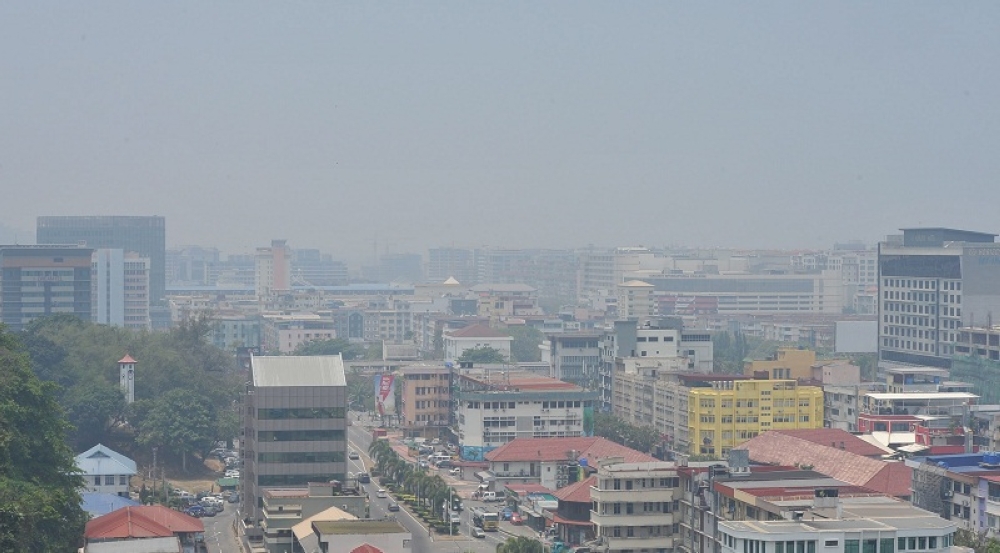NOVEMBER 22 — What we’re witnessing in Sabah, with allegations of some politicians being involved in project-fixing and demanding fees, is merely the tip of a much larger iceberg of entrenched rent-seeking and patronage practices in the state.
Rent-seeking and patronage politics refer to the exploitation of public resources and positions of power for personal or political gain.
These practices have long been identified as significant obstacles to development.
Numerous studies have linked rent-seeking and patronage to persistent underdevelopment and poverty.
I highly recommend the work of Daron Acemoglu and James A. Robinson in Why Nations Fail, which explores the role of institutions in shaping economic prosperity.
Robinson was recently awarded the Nobel Prize in Economic Sciences for his groundbreaking research on institutions and their impact on development.

Closer to home, rent-seeking and patronage politics have been well-documented in Malaysia.
Scholars like Terence Gomez and Jomo K.S. have extensively examined these issues in their seminal book Malaysia’s Political Economy: Politics, Patronage, and Profits.
Their works remain among the most authoritative studies on the political economy of Malaysia.
Patronage and rent-seeking lead to resource misallocation, stifling economic growth, and eroding trust in public institutions.
Such practices have long-lasting consequences, especially for a resource-rich yet underdeveloped state like Sabah.
In Sabah, it is not uncommon to hear allegations of YBs (Yang Berhormats) asking for a percentage of business deals to fund their political activities or leveraging their connections with those in power to secure lucrative government contracts.
This also explains why some politicians opportunistically switch from the Opposition to the ruling government — access to government projects is often only available to those in power.
What sets the current situation apart, however, is that the modus operandi of those allegedly involved has been laid bare for public scrutiny.
Despite this, some implicated politicians have attempted to deflect blame, with one absurdly claiming that artificial intelligence mimicked his voice, while another dismissed his controversial remarks as merely a “joke.”
Others, predictably, have outright denied any wrongdoing.
Whether these revelations will impact the GRS-led government under Chief Minister Hajiji Noor depends on how the issue unfolds and how effectively Opposition groups capitalise on it.
Critics of the GRS government are already pointing to these allegations as evidence of widespread corruption in the government.
Public opinion, however, is divided. Some focus on the alleged “whistleblower’s” motives, accusing him/her of attempting to destabilise the GRS-led government.
Others view the issue through the lens of ethics, condemning the politicians in question for engaging in practices that enrich themselves at the expense of the public.
Regardless of the different points of view, the fundamental problem remains: Sabah continues to grapple with the entrenched culture of rent-seeking and patronage politics.
This systemic issue has perpetuated underdevelopment in the state, despite its abundance of natural resources, while also eroding public trust and undermining the reputation of state institutions.
On one hand, Sabah relies heavily on an extractive economic model; on the other, the lack of oversight enables unscrupulous politicians to abuse the system, perpetuating a cycle of poverty and stagnation.
This issue has also brought to light the pervasive presence of what I call “cari makan” politicians in Sabah.
These individuals will go to any lengths to fulfill their desire for wealth, often through unethical, corrupt, and questionable practices.
By exploiting and manipulating their relationships with those in power, they secure cuts from government projects, but their actions bring no meaningful benefits to society.
A hallmark of these “cari makan” politicians is their opportunism — they frequently jump from one political party to another in pursuit of power and resources.
However, these individuals should not be conflated with ordinary “cari makan” Sabahans who work tirelessly to make ends meet.
The latter engage in lawful, ethical economic activities, often juggling multiple jobs to support their families.
With the rising cost of essential goods, many are struggling just to survive. These are the true “cari makan” Sabahans who deserve our respect and support.
Regardless of which political party holds power — whether locally-based or nationally-affiliated — Sabah will remain underdeveloped as long as the “cari makan” politicians roam the state, exploiting resources and manipulating power for personal gain rather than the collective good.
Without good governance and effective leadership, the state will never catch up to its more developed neighbour, Sarawak.
Sabah’s abundant natural resources should translate into prosperity for its people. Yet, the wealth of the state continues to be exploited by a select few.
Until there is a systemic shift in leadership culture and governance practices, ordinary Sabahans will remain deprived of their fair share of the state’s riches, trapped in a cycle of poverty and underdevelopment.
Addressing rent-seeking and patronage politics is critical for Sabah to break free from its developmental stagnation.
It requires political will, institutional reform, and a collective effort to demand accountability from those in power.
Only then can Sabah chart a path toward sustainable development and shared prosperity
* This is the personal opinion of the writer or publication and does not necessarily represent the views of Malay Mail.





















